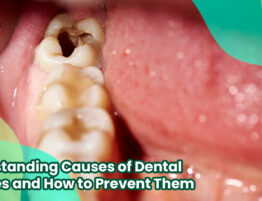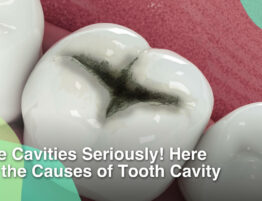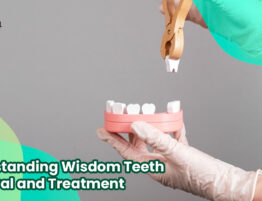
Dental veneers are a popular cosmetic dental treatment that can transform your smile. They are thin shells made of porcelain or composite resin that are bonded to the front surface of your teeth. Veneers are an effective solution for a wide range of dental problems, including chipped, stained, misaligned, or unevenly spaced teeth. In this article, we will discuss everything you need to know about dental veneers, including their benefits, types, cost, and how to take care of them.
What are Dental Veneers?
Dental veneers are thin, shell-like structures that are custom-made to fit over the front surface of the teeth. They are made from materials such as porcelain or composite resin and are designed to look and feel like natural teeth. Veneers are a popular cosmetic dental treatment that can be used to improve the appearance of teeth that are:
- Discolored
- Worn down
- Chipped or cracked
- Misaligned or irregularly shaped
- Have gaps between them
How Do Veneers Work?
The process of getting dental veneers typically involves two visits to the dentist. During the first visit, the dentist will prepare the teeth for the veneers by removing a small amount of the tooth enamel. This is necessary to make room for the veneers and ensure that they sit flush with the surrounding teeth.
After the teeth have been prepared, the dentist will take impressions of your teeth to create the custom veneers. These impressions will be sent to a dental lab, where the veneers will be made to fit your teeth precisely. In some cases, the dentist may place temporary veneers on the teeth while the permanent ones are being made.
Once the veneers are ready, the dentist will check the fit and color to ensure they match your natural teeth. If everything looks good, the veneers will be permanently bonded to the teeth using a special adhesive.
read more Root Canal Treatment: Everything You Need to Know
Benefits of Veneers
Dental veneers offer many benefits, including:
- Improved appearance: Veneers can make your teeth look whiter, straighter, and more even. They can also cover up chips and other imperfections in your teeth.
- Durability: Veneers are made of strong materials that can last for many years with proper care.
- Easy maintenance: Veneers require minimal maintenance. You just need to brush and floss them like you would your natural teeth.
- Stain-resistant: Veneers are resistant to staining from coffee, tea, and other foods and drinks that can discolor natural teeth
Types of Veneers
There are two types of dental veneers: porcelain and composite resin.
- Porcelain veneers: These are the most common type of veneers. They are made of thin shells of porcelain that are custom-made to fit your teeth. Porcelain veneers are durable, long-lasting, and offer a natural-looking finish
- Composite resin veneers: These are made of a tooth-colored composite resin material that is applied to your teeth and then shaped and polished to create a natural-looking finish. Composite veneers are less expensive than porcelain veneers but are not as durable.
Cost of Veneers
The cost of dental veneers can vary depending on several factors, including the type of veneers, the number of teeth being treated, and the location of the dental practice. Porcelain veneers typically cost more than composite veneers due to their durability and longer lifespan.
On average, porcelain veneers can cost between $800 and $2,000 per tooth, while composite veneers can cost between $250 and $1,500 per tooth. Many dental insurance plans do not cover the cost of veneers, as they are considered a cosmetic treatment. However, some dental practices offer financing options to make veneers more affordable.
How to Take Care of Veneers
Taking care of your dental veneers is simple. Here are a few tips:
- Brush and floss regularly: Brush your teeth twice a day and floss once a day to keep your veneers clean and free from plaque and tartar.
- Avoid hard or sticky foods: Veneers can be damaged by hard or sticky foods, so it’s best to avoid them.
- Wear a mouthguard: If you play sports, wear a mouthguard to protect your veneers from damage.
- Don’t grind your teeth: Grinding your teeth can damage your veneers, so talk to your dentist about getting a custom-fitted nightguard if you grind your teeth at night.
- Visit your dentist regularly: Regular dental check-ups and cleanings can help keep your veneers in good condition.
Conclusion: Puri Medical Best Dental Care in Bali
Veneers are a popular cosmetic dentistry procedure that can transform your smile and provide several benefits, including improved appearance, stain-resistance, and minimal tooth reduction. There are two types of dental veneers: porcelain and composite, and the cost varies depending on several factors. To maintain your veneers, it is important to practice good oral hygiene and avoid damaging behaviors. If you are interested in dental veneers, talk to your dentist to see if they are a good fit for you.
Come and experience the best dental care services at Puri Medical, handled directly by our expert dentists who are fluent in English. We provide comprehensive and personalized treatment options tailored to your specific needs.
Don’t let your dental problems hold you back any longer, take charge of your oral health today. Contact us at +(62) 85 100 103 103 to book an appointment with your preferred dentist and let us help you achieve a healthy and beautiful smile that you deserve. Remember, your dental health matters, and we are here to provide you with the best care possible.








